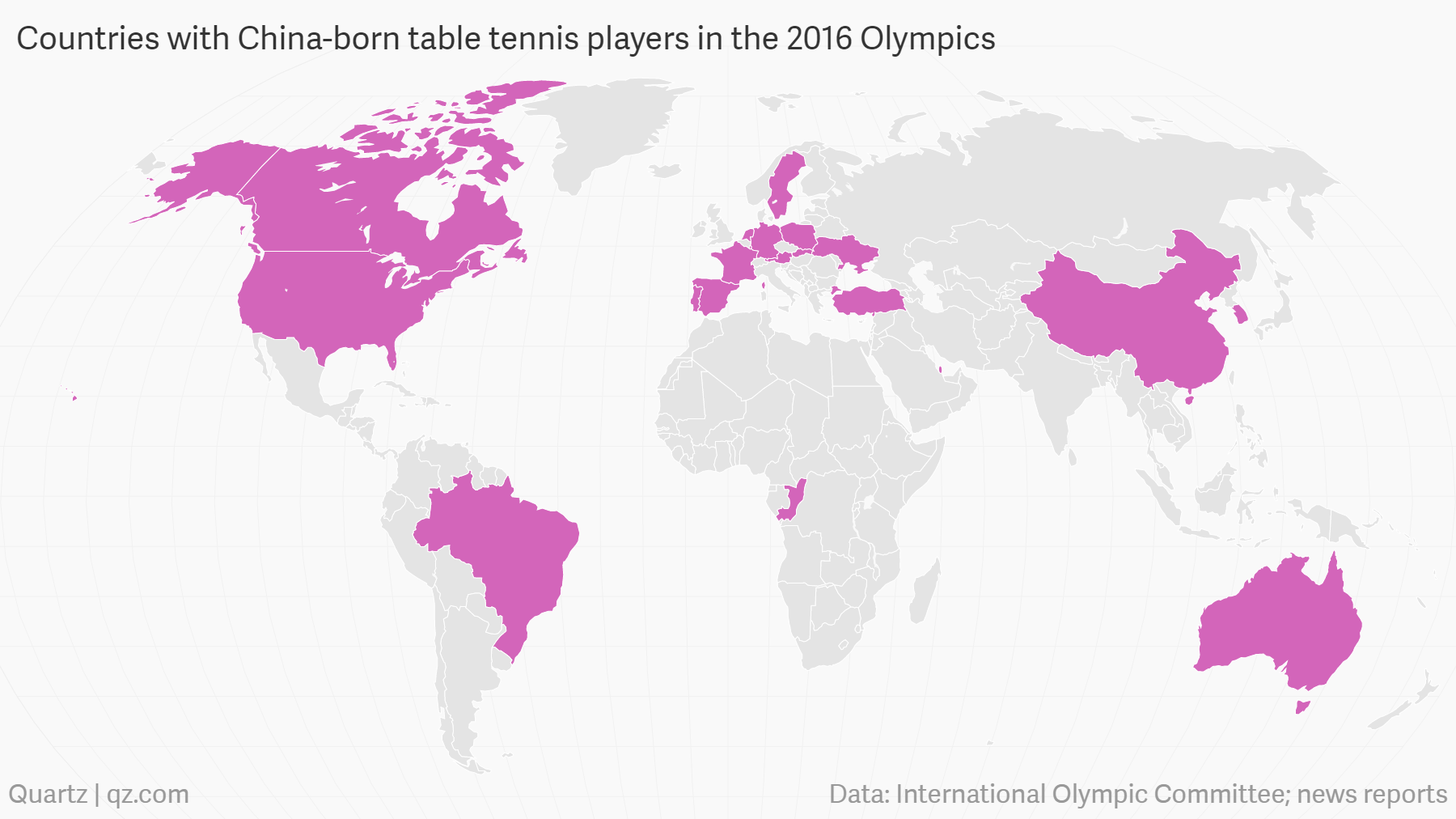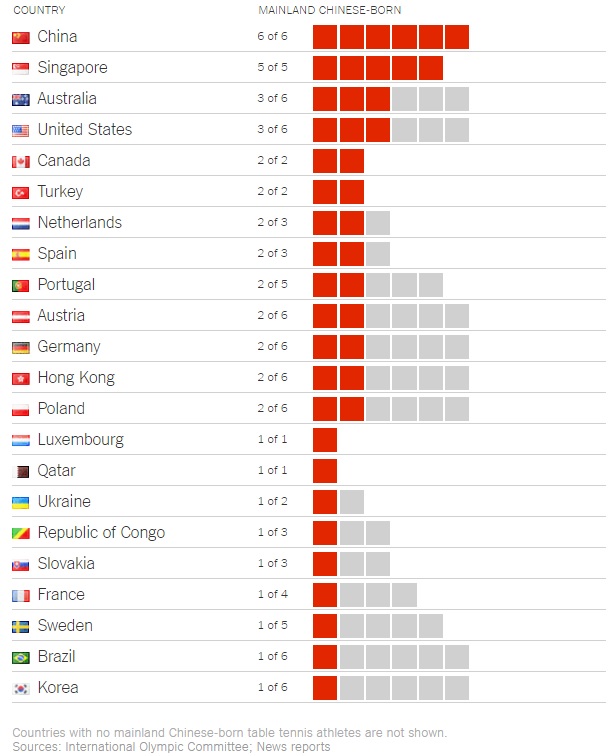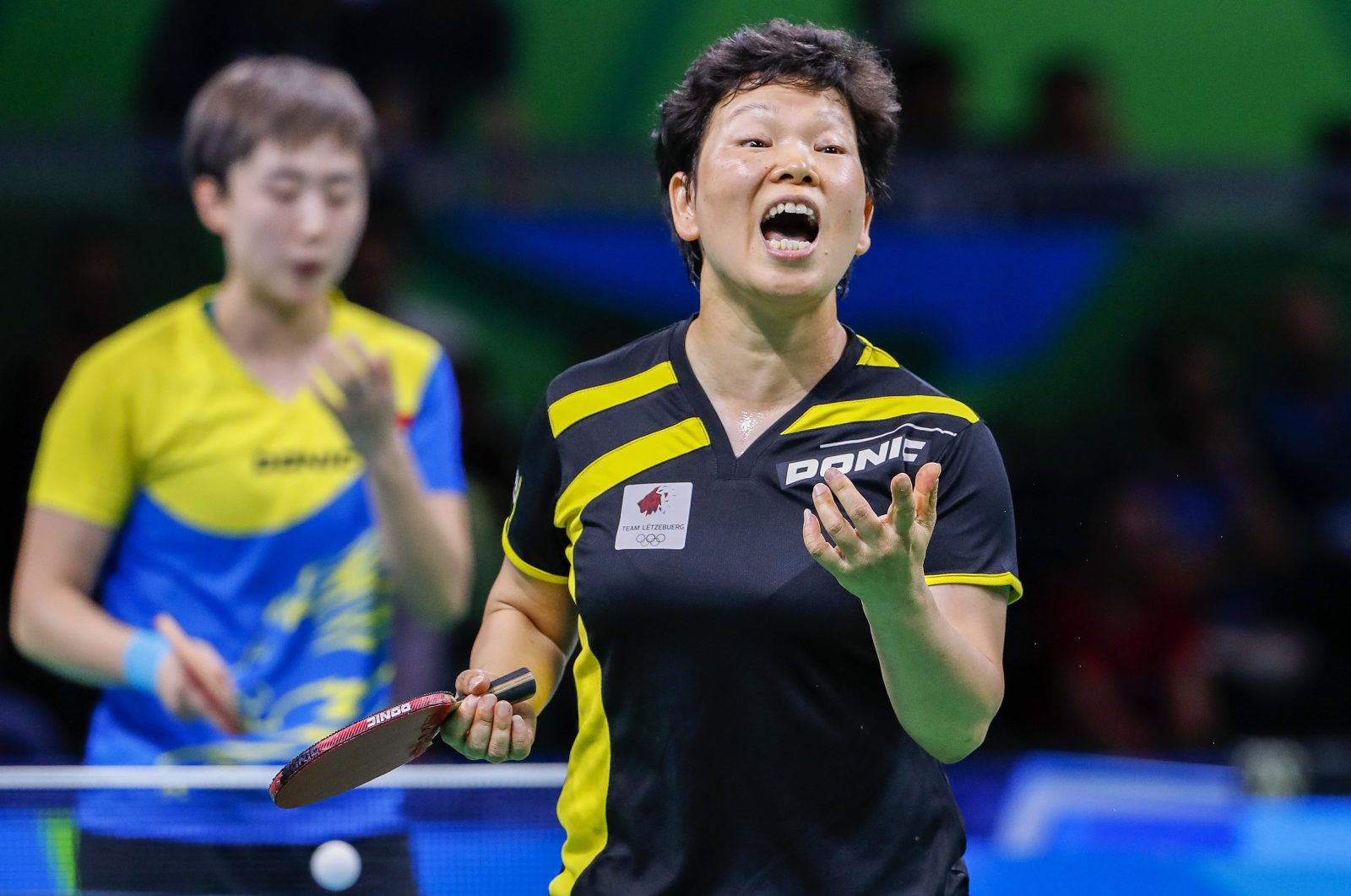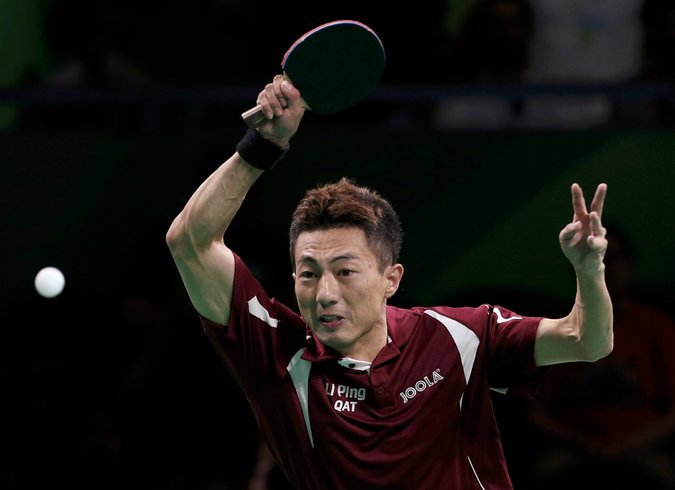If the Rio Olympics were any indication, China can add table tennis players to its list of biggest exports.
Check out this chart from Quartz, which shows all the countries that had Chinese-born ping pong players during the 2016 Games:

This sums up what's called the "Chinese against Chinese" phenomenon that occurred in many Olympic table tennis matches, where players of Chinese descent represented different countries to compete.
In the Rio Olympics alone, a total of 172 table tennis players were present, and while 44 of them were born in China, only six were actually representing China. Where did the others represent? Many, many others, apparently:

Naturalized citizens from China (38 in total) comprised roughly a fifth of all ping pong athletes at these Games. If you include ethnic Chinese players (those from China, Hong Kong, Taiwan) as well as Chinese players born overseas into account, that would increase the tally to 57 — a third of the total participants.
Though it is common in sports to have foreign-born players represent a country, the proportion of such players is overwhelming in table tennis. Why is this?
According to The New York Times, incredibly fierce competition within the Chinese table tennis scene is a big part of the reason. Ni Xialian, who left the Chinese national team to move to and represent Luxembourg in 1989, and Eugene Wang, who was offered a place on the Canadian national team, both cited "too much competition" as their reason for their new nationalities.

Chinese players represented both teams in this Luxembourg vs. Singapore matchup.
The Chinese system selects the best players from the many city teams and provincial clubs. Out of the thousands playing, only 50 men and 50 women qualifiy to enter the top national program. As a result, those who "don't manage to have a breakthrough before the age of 15 or 16" have "no chance," says Xing Han, who now represents the Republic of Congo.
Many are critical of this "table tennis exodus." In 2009, Cai Zhenhua, president of China's Table Tennis Association, told China's CCTV that this dominance by China could breed complacency and eventually lead to the global decline of table tennis. Tommy Danielsson, Luxembourg's table tennis coach, commented that, while the "inclusion of experienced players from China brings in more subsidies for the sport [it] fails to facilitate cultivation of young local players."
Others, however, are less enthusiastic about those Chinese players who appear interested only in furthering their personal careers, and not show much enthusiasm about their new home country.
For Thomas Weikert, the president of the Table Tennis Federation, this is not a "problem," but an "issue." Though he would like some kind of a regulation that makes it mandatory for players to live in a country for a lengthy period of time before representing it, he feels that this phenomenon "is not the fault of the Chinese" and that "the others have to practice hard."
How do the players themselves feel about this Chinese dominance? Macros Madrid of Mexico "sighed and smiled" when asked the question: "It's complicated....I know in my mind I need to practice more because they are there."
To restore balance in table tennis, Weikert is planning for a new project where "young, non-Chinese players, with the cooperation of the Chinese association, could live and train" in China for years at a time to learn in the highly-competitive environment. Nicknamed the "wolf-rearing plan," this initiative will not only send Chinese coaches overseas but also invite foreign players to attend table tennis schools in China.

Li Ping left the Chinese team last year to play for Qatar.
Meanwhile, the Chinese dominance in the global table tennis scene will likely continue. “I don’t think it’s important which country you’re representing,” said Li Ping, who left the Chinese team last year to play for Qatar. “The important thing is to be able to participate in the Olympics and demonstrate your abilities on the competition grounds.”
[Images via Quartz, NYTimes, Global Times]





















0 User Comments